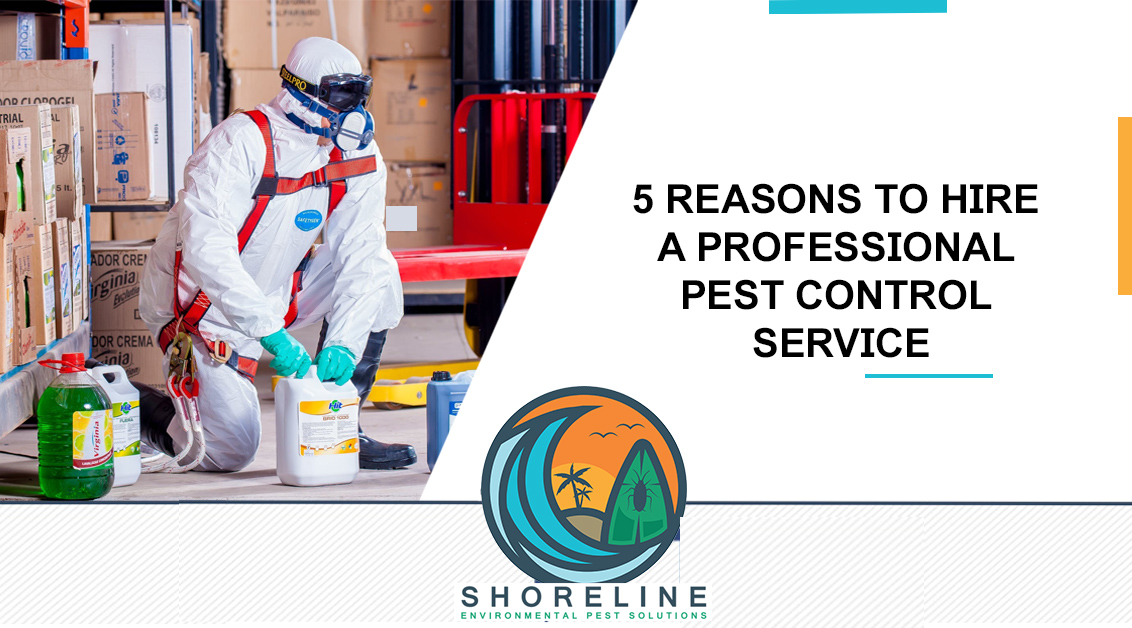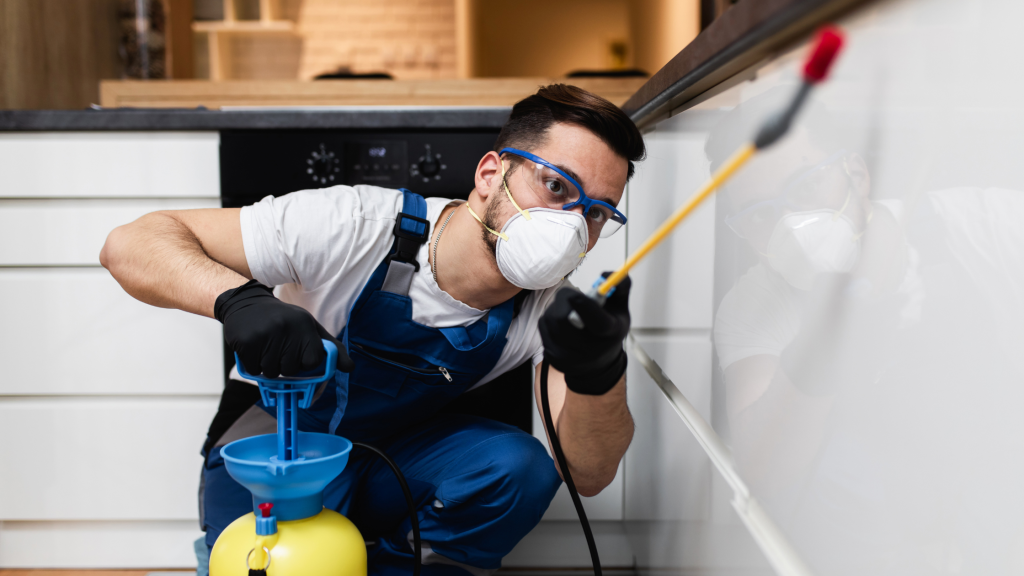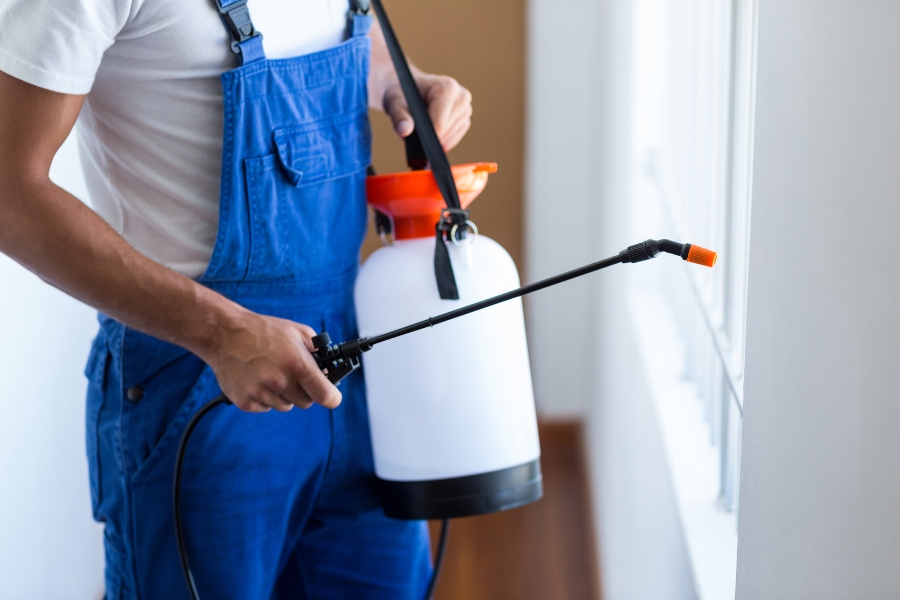Trusted Pest Control Clovis: Securing Your Residential property
Trusted Pest Control Clovis: Securing Your Residential property
Blog Article
Comprehending the Various Methods to Insect Control: A Comprehensive Overview

All-natural Bug Control Approaches
Using eco-friendly techniques such as companion planting and organic insect control is necessary for successfully handling bugs in farming settings. Companion planting entails expanding various plants in distance to prevent insects, improve nutrient uptake, and improve overall plant wellness. As an example, growing marigolds along with tomatoes can assist push back nematodes. In a similar way, intercropping maize with legumes can disrupt the reproduction patterns of bugs like corn borers.
Biological parasite control includes introducing natural killers or virus to manage pest populations. Ladybugs, for example, feed upon aphids, regulating their numbers without the need for chemical pesticides. An additional example is using Bacillus thuringiensis (Bt), a bacterium that targets particular insect pests while being safe to humans, pets, and useful pests.
These environment-friendly methods not only lower the dependence on synthetic pesticides yet also assist maintain biodiversity and soil health and wellness. By incorporating all-natural bug control strategies into farming techniques, farmers can achieve sustainable parasite management while reducing unfavorable influence on the atmosphere.

Chemical Insect Control Solutions
Along with all-natural insect control methods, the utilization of chemical insect control remedies plays a considerable function in effectively handling pest populaces in farming settings. Chemical pest control solutions are formulated to target particular insects that may trigger substantial damages to plants. These solutions frequently include synthetic pesticides that are developed to eliminate insects rapidly and effectively.
One of the essential advantages of chemical insect control services is their efficiency in controlling pest infestations widespread. Farmers can use these options making use of numerous methods such as splashing, airing out, or seed therapy to secure their crops from damaging insects, weeds, and diseases. Additionally, chemical parasite control remedies are fairly easy to use and can offer rapid results, helping farmers guard their returns and decrease economic losses.
Nevertheless, it is important to make use of chemical bug control remedies deliberately to reduce potential unfavorable influence on the setting, non-target organisms, and human health and wellness. Proper application methods, adherence to safety guidelines, and routine monitoring are vital to guarantee the liable use chemical bug control solutions in farming techniques.
Biological Insect Control Approaches
Organic parasite control approaches utilize natural predators or virus to manage bug populaces in agricultural setups successfully. This technique provides a green and sustainable service to pest monitoring, reducing the reliance on artificial chemicals and decreasing injury to the environment. One typical organic control strategy is the introduction of natural opponents, such as ladybugs or parasitic wasps, to target certain parasites. These predators feed on the insects, assisting to manage their populaces normally - pest control clovis.
Another biological control approach entails making use of virus like viruses, fungi, or germs to contaminate and kill insects. These microbial agents can be splashed on site plants or introduced into the soil to battle numerous bugs without hurting helpful bugs or other wildlife. In addition, using pheromones to interfere with the breeding patterns of insects is another efficient biological control technique. By interfering with their reproduction, this approach helps to read this article minimize bug populations without the demand for chemical treatment. In general, biological bug control methods supply a lasting and targeted service to pest monitoring in farming.
Integrated Pest Administration (IPM)
Integrated Pest Administration (IPM) is a comprehensive method that incorporates various bug control strategies to successfully manage and reduce pest populaces in farming systems. IPM focuses on long-lasting avoidance of parasites through a combination of organic, social, physical, and chemical control methods. By integrating these various strategies, IPM aims to decrease reliance on chemical pesticides, decrease ecological impact, and promote lasting bug monitoring practices.
One key element of IPM is the usage of organic controls such as all-natural killers, bloodsuckers, and pathogens to regulate insect populations. This technique uses the power of nature to keep an equilibrium between pests and their natural enemies without causing damage to the atmosphere.
In addition, IPM involves cultural practices like plant hygiene, environment, and rotation control to produce unfavorable conditions for pests and disrupt their life process. Physical controls such as mulches, obstacles, and catches are likewise used to avoid bug problems.
Physical and mechanical Bug Control Methods
Using non-chemical methods, such as physical and mechanical bug control methods, is a critical facet of comprehensive pest management methods, building on the foundation of Integrated Parasite Administration's holistic strategy. Mechanical bug control involves using physical barriers or catches to stop insects from accessing and harming crops or frameworks. This technique can consist of methods like installing displays on windows, making use of row covers in agriculture, or using sticky traps to capture bugs.
Physical parasite control techniques, on the various other hand, focus on straight getting rid of parasites with physical ways. As an example, making use of warm therapies to eliminate bed pests or vacuuming up pests like spiders or ants can be reliable methods to take care of invasions without making use of chemicals. By including these mechanical and physical bug control techniques into an Integrated Parasite Management plan, experts and people can lower reliance on pesticides while still successfully taking care of pest populations and reducing damage.
Final Thought

In addition to all-natural bug control methods, the application of chemical insect control solutions plays a substantial role in properly handling pest populations in agricultural settings.One of the key advantages of chemical insect control solutions is their effectiveness in managing pest problems on a big range.Integrated Insect Monitoring (IPM) is an extensive approach that integrates numerous insect control approaches to successfully take care of and reduce pest populaces in farming systems.Utilizing non-chemical techniques, such as mechanical and physical bug control strategies, is a vital aspect of extensive parasite management techniques, constructing upon the foundation of Integrated Insect Management's holistic technique. By including these mechanical and physical insect control methods right into an Integrated Pest Management plan, professionals and individuals can decrease reliance on pesticides while still successfully taking care of pest populaces and minimizing damage.
Report this page